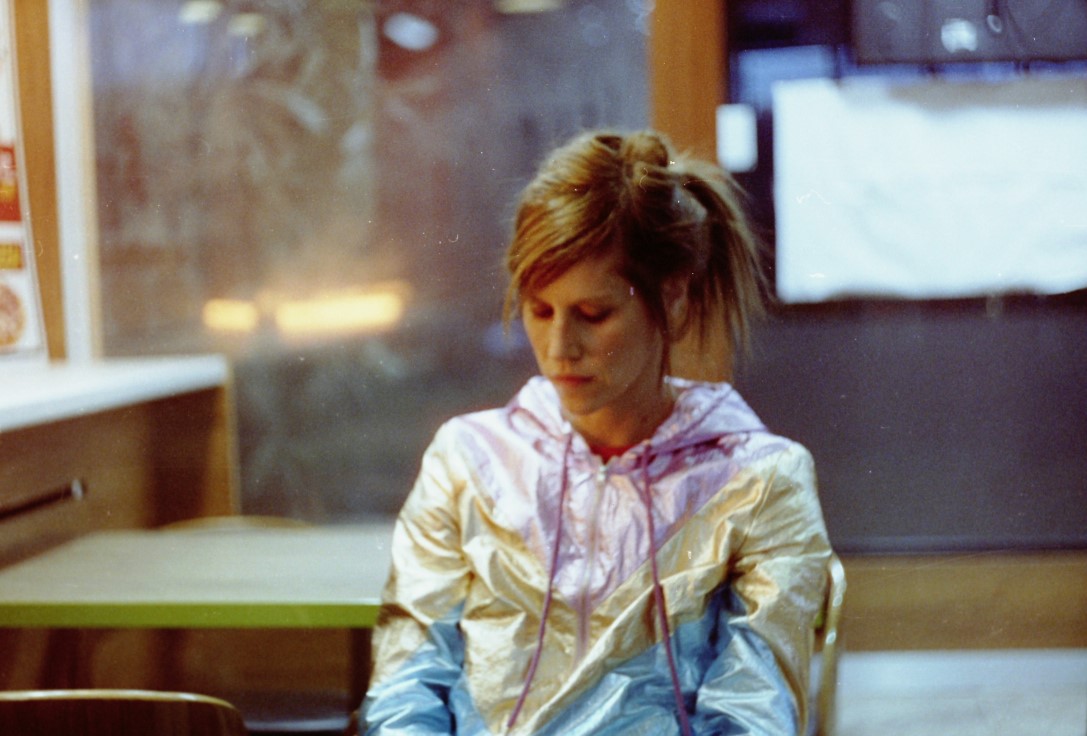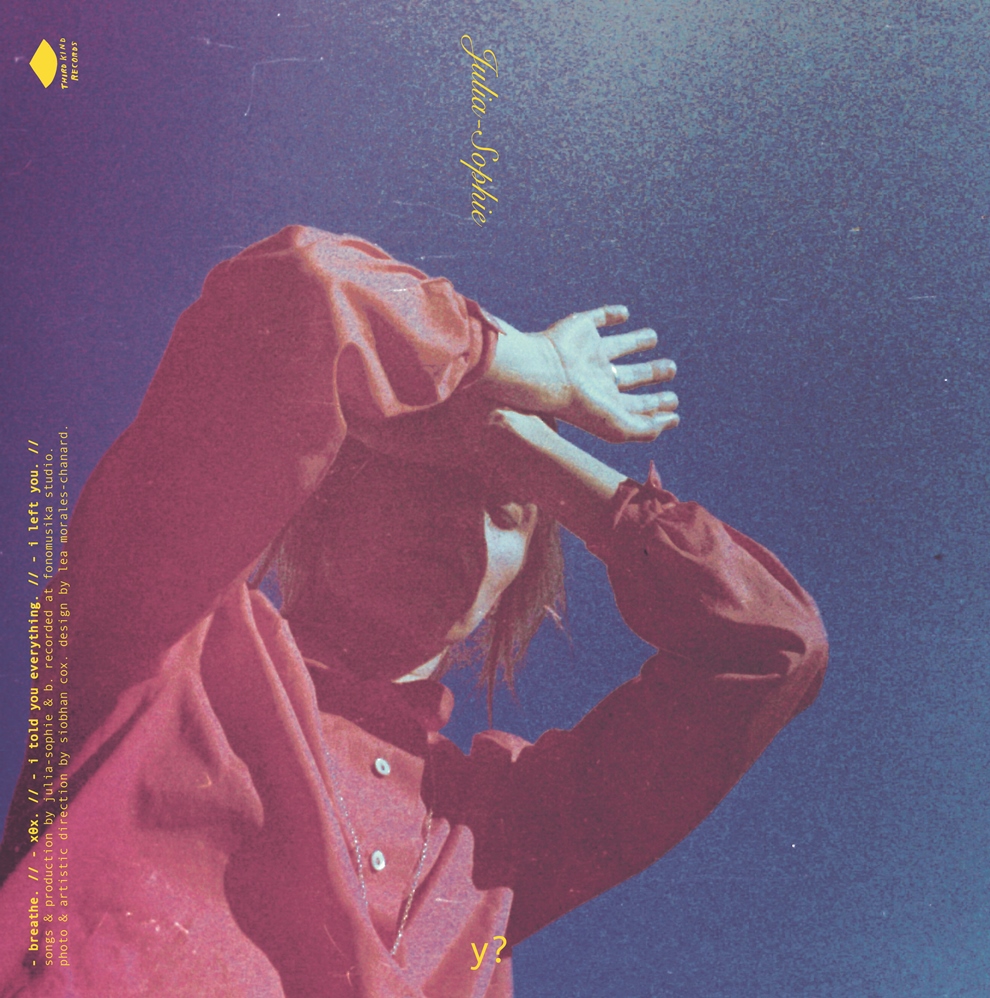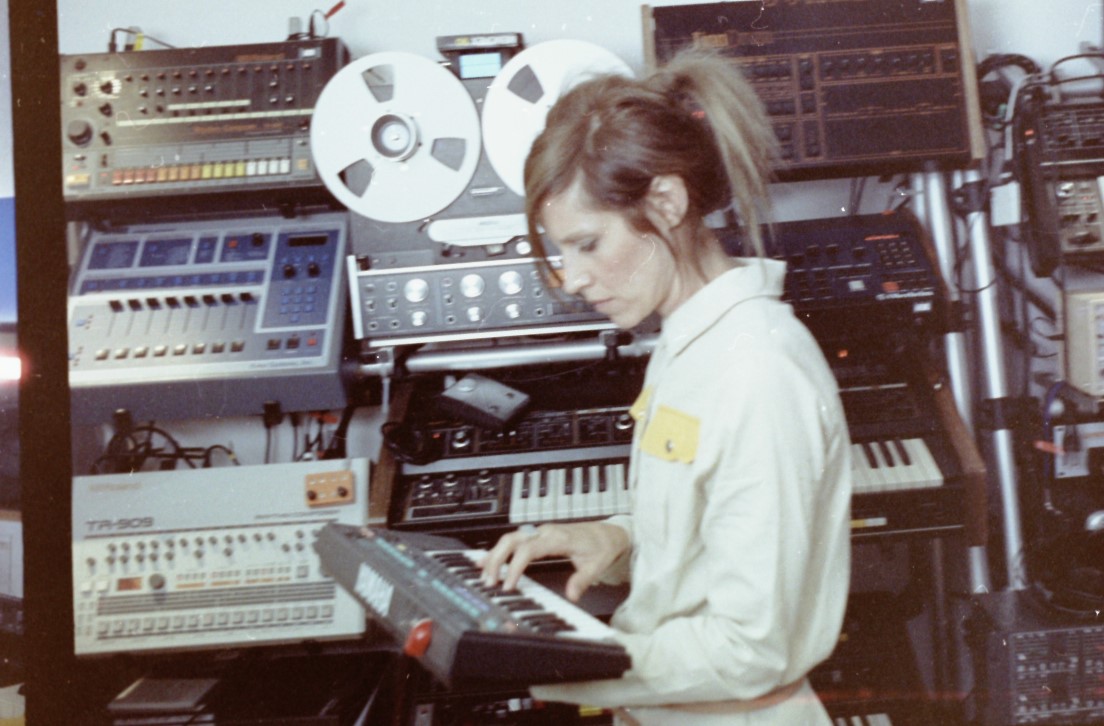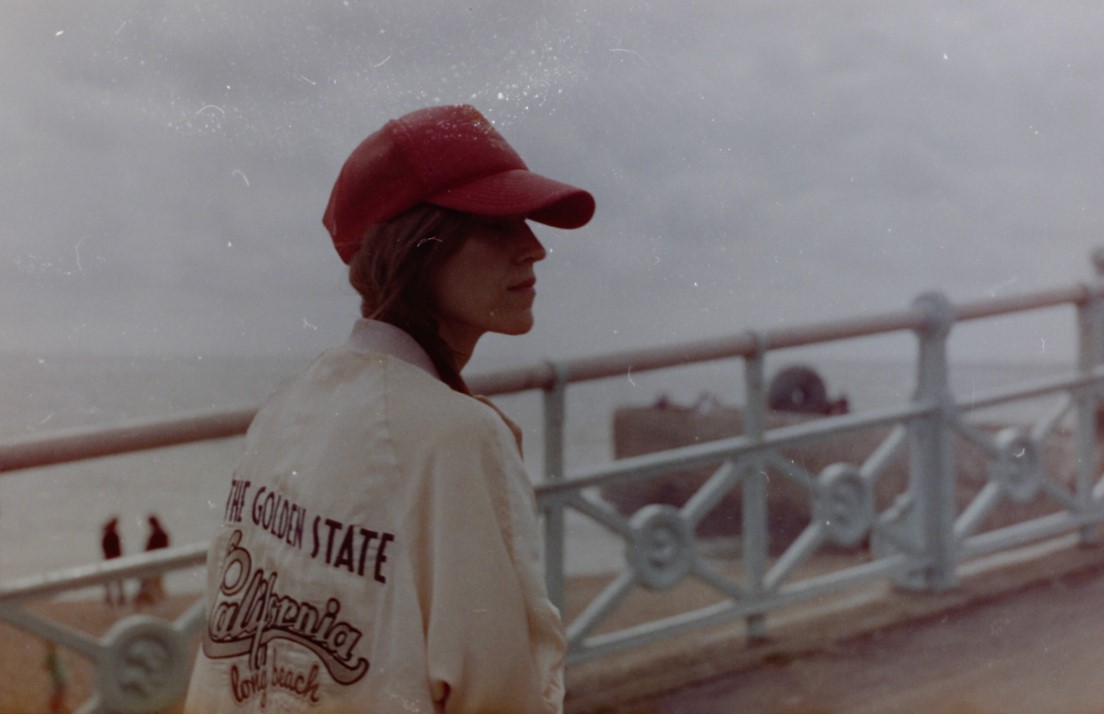After nearly achieving mainstream success as a member of rock band LITTLE FISH, Anglo-French singer-songwriter Julia-Sophie Walker became disillusioned and retreated into DIY music making as a solo artist.
The end result was three excellent EPs ‘y?’, ‘</3’ and ‘it feels like thunder’ which captured her anguish and pain. But despite the emotional anguish of her vocal expression, Julia-Sophie always has hope on the horizon in her style of absorbing electronic avant pop.
Now she takes the plunge into the long form with her debut album ‘forgive too slow’. Providing a deeply personal reflection on past relationships, these gently emotive songs combine traditional composition and experimental sound synthesis. One moment these songs can be ambient, then rhythmically skippy, then airy pop while sung in English and then spoken in French, each presents its own world weary character connected by Julia-Sophie’s fraught narrative.
With the release of the heartbreaking second single ‘telephone’ from ‘forgive too slow’, Julia-Sophie kindly took time out to speak to ELECTRICITYCLUB.CO.UK about her creative process.
You opened your solo account with three EPs, did you regard these as an apprenticeship before you took the plunge with a full-length album?
Yes, the first three EPs I made were all about exploring sounds, seeing where my creativity would take me, who I was and wanted to be as a solo artist. This experimentation was crucial in developing my sound and style.
How do you look back on those EPs, particularly the first two which had the symbol coded titles ‘y?’ and ‘</3’ ?
Looking back on those EPs, I see them as pivotal moments in my artistic journey. They were experimental and raw, capturing my willingness to explore uncharted territories and express complex emotions through sound. ‘y?’ represented a phase of questioning and curiosity, while ‘</3’ delved into themes of heartbreak and vulnerability. These early works laid the foundation for my sound and continue to influence my music today.
What were the various pros and cons in the solo creative and production process at first?
Initially, navigating the solo creative and production process was both exhilarating and challenging. On the plus side, I had complete creative freedom to experiment with different sounds and ideas, allowing my unique style to emerge organically. The ability to make decisions independently and work at my own pace was incredibly liberating.
However, the process also came with its challenges. Without a collaborative sounding board, I sometimes struggled with self-doubt and second-guessing my choices. It was easy to get lost in the technical aspects of production, which occasionally pulled me away from the pure joy of creating music. Balancing creativity with the technical demands of production required a steep learning curve, but ultimately, it was a rewarding journey that made me a more versatile and resilient artist.
In terms of tech, what are your favourite tools and why? Are you quite software oriented or is hardware the best most tactile way to make music?
Although I do use software, my go-to tools are analog synths and analog drum machines. I believe they offer more depth and a richer, more organic sound. For me, there’s an unparalleled warmth and complexity that comes from working with analog equipment, and the hands-on experience of tweaking and playing with these instruments often leads to unexpected and exciting creative outcomes.
Which artists and producers have shaped your approach to electronic music?
Several artists and producers have significantly shaped my approach to electronic music. Pioneers like APHEX TWIN and KRAFTWERK have influenced my appreciation for innovative sound design and pushing the boundaries of electronic music.
Contemporary producers like Four Tet, Bonobo, Thom Yorke and James Blake have inspired me with their ability to blend organic and electronic elements seamlessly. Additionally, the intricate production techniques of artists like Jon Hopkins and the emotive, textured soundscapes of Nicolas Jaar have deeply impacted my approach to creating immersive and emotionally resonant music.
‘forgive too slow’ is about relationships and you have dug deeper than before, how do you feel now you have finished it?
Finishing and releasing ‘forgive too slow’ feels quite exposing. This album delves deeper into the complexities of relationships than anything I’ve done before, exploring themes of self-destruction, tenderness, love, and emotional struggles. The process was challenging, raw, and cathartic, but now that it’s complete, I feel a little empty and vulnerable. Sharing such honest emotions with listeners is both daunting and powerful, but I have done it in the hope that it resonates with people on a deeper level and because I don’t want people who have felt or feel similarly to feel alone.
What was most different in your approach when doing an album compared with the EPs?
The most significant difference in my approach when working on an album compared to the EPs was the level of depth and cohesion I aimed for. With the EPs, I was more focused on exploring sounds and taking creative risks on individual tracks.
However, for the album, I wanted to create a more unified and immersive experience. The album format allowed me to delve deeper into storytelling and develop my song and production arrangements. This required a more disciplined and sustained effort.
‘numb’ is a striking statement and observers have commented on the intense bassline, how did the track develop, especially with its distinct sections and changes?
‘numb’ is indeed a track that evolved significantly during its development. The intense bassline was one of the first elements I created, serving as the foundation around which the rest of the track was built. I wanted it to convey the feeling of underlying, incessant tension. As the track progressed, I experimented with distinct sections and changes to mirror my experience of fluctuating emotional states, from numbness to overwhelm, back to numbness.
The introduction starts with a minimalist approach, gradually building up layers and shifting the intensity to more complex rhythms and textures, creating a feeling of escalating pressure and reflecting my inner chaos and loss of control. My hope was that this contrast would help capture the dynamic nature of human emotion, how it can oscillate.
In the outro, the track strips back down, almost to its initial minimalism, but with a deeper, more resonant sound. This return to simplicity after the intense middle section is meant to illustrate the cyclical nature of life and emotion, the different ways we navigate or experience emotional storms.
Another intense one is ‘lose my mind’ which has these buzzy rumbles and skippy rhythms, was doing this one quite cathartic for you?
Yes, creating ‘lose my mind’ was incredibly cathartic. The buzzy rumbles and skippy rhythms were designed to capture the chaotic energy and disorientation I was feeling at the time. Working on this track allowed me to channel those intense emotions into something tangible. The process of layering these sounds and experimenting with rhythms was both a release and a form of self-expression, helping me process and make sense of my inner turmoil.
‘comfort you’ has contrasting moods with frantic beats and heavy drones sitting next to parts that are almost acapella, what was going on in your head to inspire that?
‘comfort you’ reflects my experience of feeling contrasting emotions. The frantic beats and heavy drones represent the inner franticness and stress I often feel, whilst the almost a cappella vocals symbolising how I might openly communicate myself. They are very different. I wanted to capture these opposing states and illustrate how they coexist in my music – I guess it is a statement about how easy it is for us to be to missed.
There appears to be comparative relief with ‘wishful thinking’ which is more like a conventional electronic pop song, was this a deliberate gesture?
Yes, ‘wishful thinking’ was a deliberate gesture towards a more conventional electronic pop sound. After exploring intense and complex emotions in my other tracks, I wanted to create something that felt lighter and more hopeful. This track serves as a moment of relief and optimism within the album, reflecting a desire for simpler, more straightforward emotions. It’s meant to provide a contrast and a sense of balance, offering a break from the intensity and a glimpse of positivity.
Are there any pivotal or favourite tracks for you on ‘forgive too slow’ and why?
‘just us’ and ‘telephone’ are special to me. For whatever reason, they touch me profoundly and have an emotional impact that resonates deeply within me. Every time I hear them, I feel the intensity and vulnerability that went into their creation, often bringing me to the brink of tears. These songs are not just tracks on an album; they are emotional experiences that hold significant personal meaning for me.
Who do you hope ‘forgive too slow’ might appeal to?
I hope ‘forgive too slow’ resonates with anyone who has ever struggled with complex emotions and the intricacies of relationships. I believe it will appeal to those who seek depth and authenticity in music. I want it to reach listeners who feel misunderstood or alone in their experiences, offering them a sense of connection and understanding. Whether they are navigating the highs and lows of love, dealing with inner turmoil, or striving for personal authenticity, I hope this album provides solace and a feeling of solidarity.
What are you own hopes and fears both personally and artistically as the state of the world continues to be less certain?
As the state of the world continues to be less certain, my personal and artistic hopes and fears are intertwined. The broader global issues—climate change, social unrest, and economic instability—pose existential threats that impact everyone, and I worry about how these challenges will affect our ability to live as kind and loving humans, let alone create space in our lives that enable us to continue to create. I am committed to my journey of personal and artistic growth, I work hard to contribute positively by working to keep human connections with people authentic. This I hope, although not huge, will play its small part in creating ripples of positive energy in the world, that I believe is more important than ever.
ELECTRICITYCLUB.CO.UK gives its warmest thanks to Julia-Sophie Walker
Special thanks to Jamie Halliday at Audio Antihero
‘telephone’ is from the album ‘forgive too slow’ released on 26 July 2024 by Ba Da Bing Records as a turquoise vinyl coloured LP + download, pre-order from https://juliasophie.bandcamp.com/album/forgive-too-slow
https://www.facebook.com/juliasophiex0x
https://twitter.com/juliasophiex0x
https://www.instagram.com/juliasophiex0x/
https://open.spotify.com/artist/1GqWR6G16qx5tAcRBy5tcw
Text and Interview by Chi Ming Lai
Photos by Siobhan Cox
25th June 2024






Follow Us!